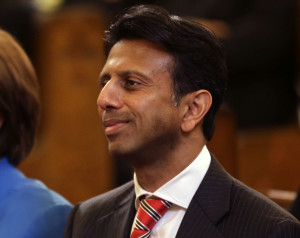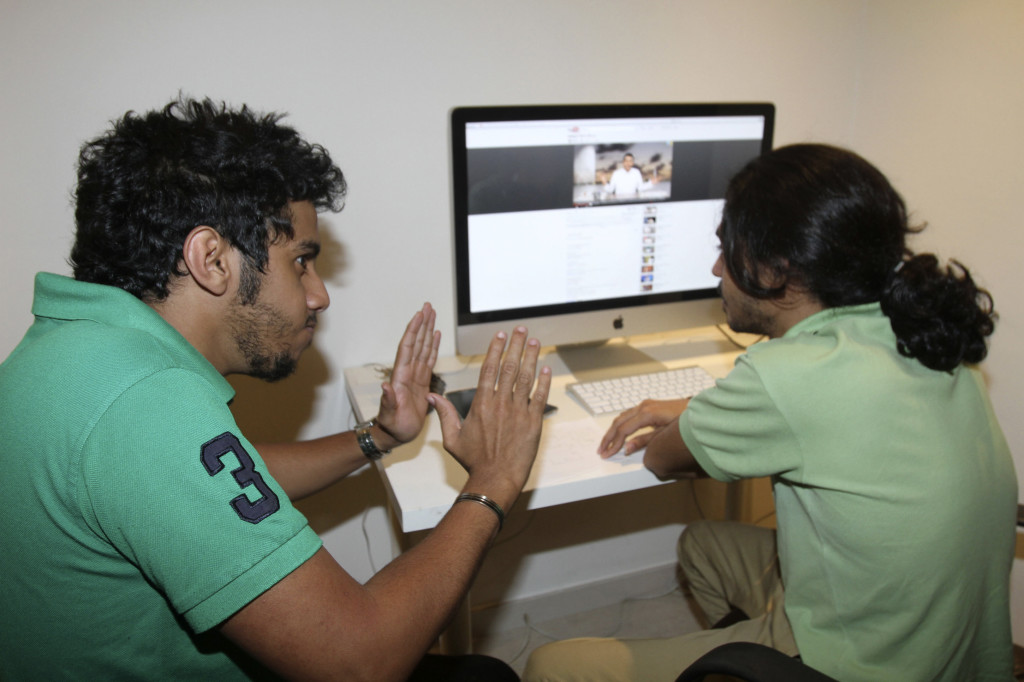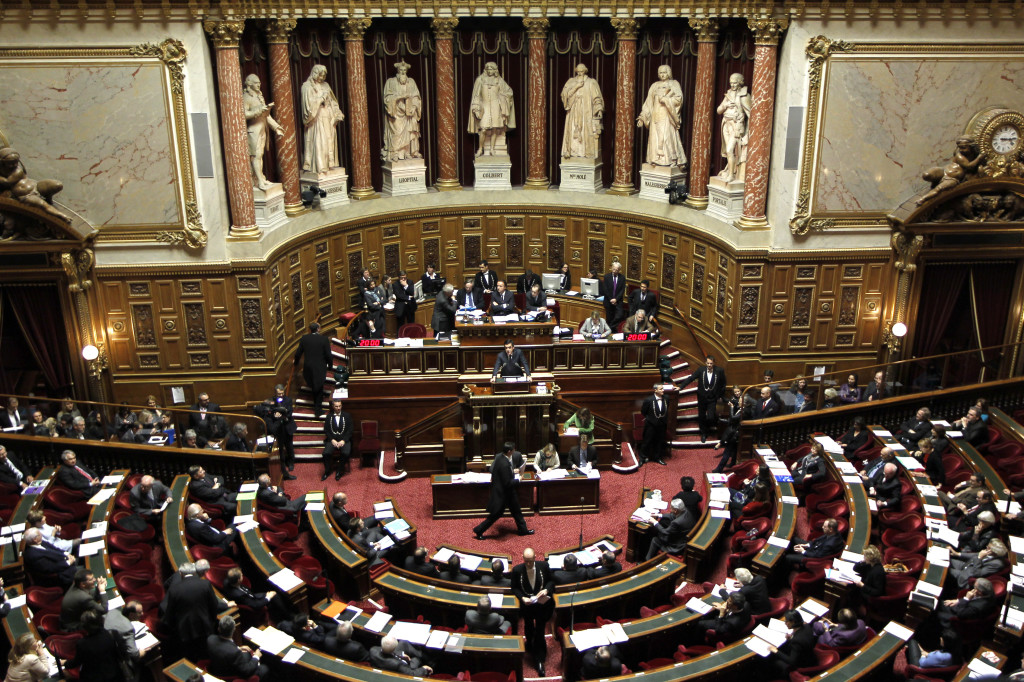Posted December 16th, 2013 at 9:14 am (UTC+0)
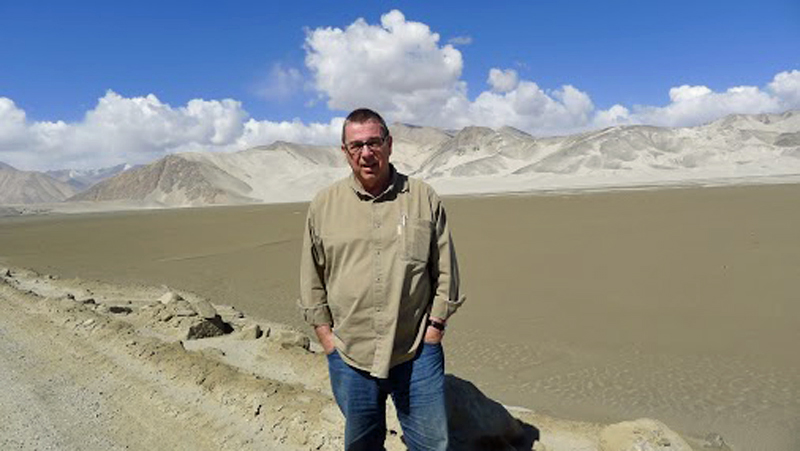
Currently some two dozen journalists from the New York Times and Bloomberg are waiting to receive their visas from the Chinese government, as a year-end deadline approaches. Meanwhile, web sites of both media outlets have been blocked in China after they published articles detailing the wealth of the families of China’s top leaders. Last month, China rejected the visa application of a freelance journalist who has been reporting from Beijing for the past 18 years. RePRESSed spoke with Paul J. Mooney, who told his story.
Mooney: Reuters offered me a job earlier this year to come to Beijing to work and they applied for a visa for me in March. I waited about eight months, but my visa never came. Then finally, the Chinese government told Reuters that they had refused me the visa. They didn’t give any reason for this, but in April, I had to go to the Chinese consulate in San Francisco for a visa interview, and for 90 minutes I was grilled about my views on human rights, on Tibet, the Dalai Lama, things like that. It was clear to me that my reporting in the past on issues like that might be a problem for me.
RePRESSed: You were in China for 18 years. How has China’s treatment of foreign journalists changed in the past decade, and how do you account for that change?
Mooney: Certainly in the last four years it’s gotten worse. China made some concessions and relaxed the system a bit on journalists when they were applying for the Olympics, but immediately after that, they started to crack down again. They began to make people wait for their visas an abnormal length of time, and in each case it was clear to the people involved why they had not been given their visas yet. It was obvious that they had done certain reporting during the year that displeased the Communist government.
I think there are a couple of reasons for this. Number one, the Arab Spring made them quite worried, and so they decided to crack down and make sure the media did not play a role in reporting about this. In China, there was a brief movement they called the ‘Jasmine Revolution, and the police were quite strong in cracking down on reporters who went there. One reporter from Bloomberg was beaten up. They called up reporters and told them not to go. They threatened not to reissue visas to reporters who covered this event. And so they really were trying to keep this from being reported.
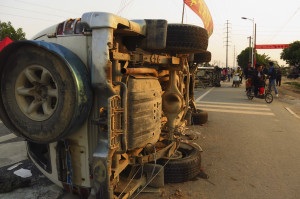
An overturned jeep is seen at the entrance of Shangpu village in China’s southern Guangdong province March 5, 2013. Torched vehicles and violent clashes in the Chinese village of Shangpu as farmers protest the loss of land to developers is an uncomfortable reminder to Beijing’s incoming leadership that, for many, pledges of reform to prevent land grabs ring hollow. Picture taken March 5, 2013. REUTERS/James Pomfret
Also, there is a rising number of protests in China. There’s a lot of dissatisfaction. You have some 127 people setting fire to themselves in Tibet. You have a rising number of incidents in Xinjiang, the Muslim area in northwest China. You have hundreds of thousands of AIDS victims who haven’t been able to get compensation. You have unhappy farmers who have lost their land and factory workers who are unhappy. Social media has meant that these stories get out all over China. A lot of Chinese people hear about it and foreign people hear about it on social media. The government has lost its ability to control the truth and dialogue on these issues…so they are lashing out by stepped-up controls in the internet and in Chinese media and in foreign media in order to try and stop this kind of reporting and to stop news from spreading.
RePRESSed: This must have put you under considerable stress. Were you ever afraid?
Mooney: Oh, yes. I was frequently afraid. I went and visited AIDS villages where there are hundreds of thousands of people who got AIDS through government-run but illegal blood collection centers, and they try to cover this up. And there’s plenty of police presence around the villages that were hit the hardest with the HIV-AIDS virus.
I did stories on kidnapped kids [forced to work] in brick kilns hooked up with local government. I went to cancer villages where the local government was involved in factories that were pouring heavy metal waste into their land.
It’s seldom for a foreign journalist to be beaten or anything, but it’s very common for a foreign journalist to be detained by police who try to erase their photos off your camera or try to confiscate your notes. Sometimes they’d detain you for hours. And so there’s always a risk when you go out and do this kind of reporting. So I was always worried. My family was worried about me.
RePRESSed: So self-censorship goes along with the territory, then?
Mooney: I was actually surprised by the Bloomberg that alleged that Bloomberg had self-censored because I didn’t think this would happen, especially with big news organizations. But I’m confident that most of my colleagues in Beijing didn’t self-censor. But the pressure is always there and you are always looking over your shoulder. You’re worried. I did a story on the asbestos problem in China and approached 12 government agencies, and they all turned me down. They said it was too sensitive. And frankly, if I reported on the asbestos issue, then I might get kicked out. It’s a huge problem. Tens of thousands of people are dying every year, but nobody knows about it in China. There’s no doubt in my mind that some journalists decide not to do a story because it just may cost them too much.
Recently, one journalist called me up and wanted to speak about the media issue and then said, “Well, I’ll interview you in a few weeks after I get my visa. So obviously he was worried that, if he wrote about this, he wouldn’t be able to stay in China. How many reporters over the next year, after seeing about what happened to me or Melissa Chan of Al Jazeera, who was kicked out a year ago or some two dozen Bloomberg and New York Times reporters having [?] 5:43 visas, how many more journalists are now going to be even more inclined to be careful about what stories they choose?
RePRESSed: What do you believe China is doing with respect to the New York Times and Bloomberg? Is this a game of chicken or do you think they really intend not to give these reporters their visas?
Mooney: I think it’s a game of chicken. I suspect that they’ll give them these visas, but they will wait until the final day or the day before the visas expire. They’ll feel that they’ve shown journalists that they’re in control, that they can hold the visa over you, and they will feel that people were intimidated by this. It’s a warning.
 In follow up to an earlier post, an American citizen is among eight youths in Dubai who have been convicted of “defaming the UAE society’s image abroad” and sentenced to jail terms ranging from eight months to one year.
In follow up to an earlier post, an American citizen is among eight youths in Dubai who have been convicted of “defaming the UAE society’s image abroad” and sentenced to jail terms ranging from eight months to one year.

